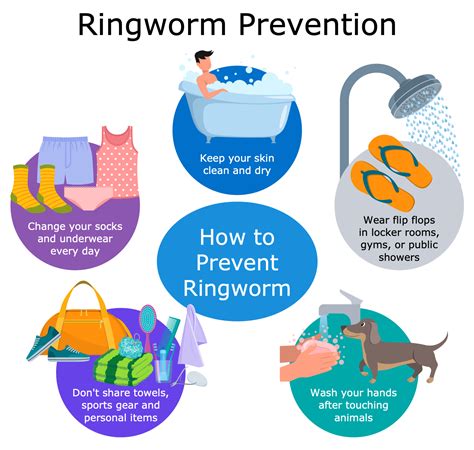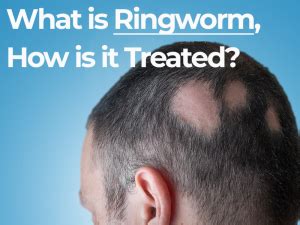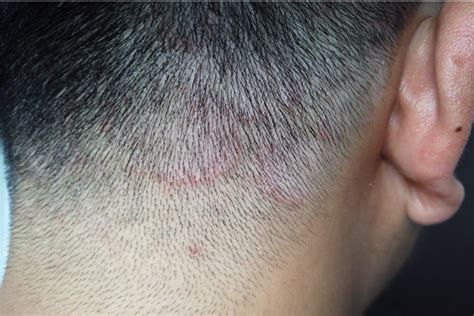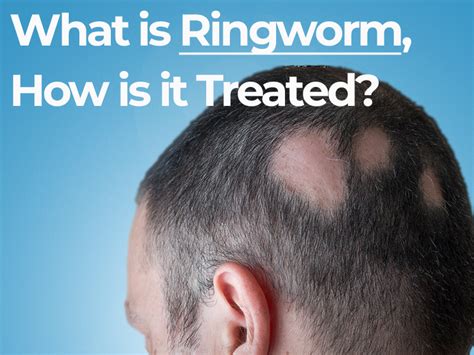Intro
Discover how ringworm affects hair with 5 key impacts, including hair loss, scalp infections, and fungal growth, exploring symptoms, treatments, and prevention methods for healthy hair restoration and scalp care.
Ringworm, also known as tinea, is a fungal infection that affects the skin, causing a ring-shaped rash. While it's commonly associated with skin infections, ringworm can also affect hair, leading to hair loss, scalp irritation, and other issues. In this article, we'll delve into the ways ringworm affects hair, its symptoms, treatment options, and prevention methods.
Ringworm is highly contagious and can be spread through direct contact with an infected person, animal, or contaminated object. The fungal infection can affect anyone, regardless of age or gender, and can be particularly problematic for people with weakened immune systems. When it comes to hair, ringworm can cause significant damage, leading to hair loss, scalp irritation, and even long-term hair growth problems.
The impact of ringworm on hair is often overlooked, but it's essential to understand the effects of this fungal infection to seek proper treatment and prevent further complications. Ringworm can affect hair in various ways, including hair loss, scalp irritation, and changes in hair texture. In severe cases, ringworm can lead to long-term hair growth problems, making it challenging to achieve healthy, full hair.
Understanding Ringworm and Its Effects on Hair

Symptoms of Ringworm on Hair
The symptoms of ringworm on hair can include: * Hair loss, particularly in circular patches * Scalp irritation, including redness, itching, and swelling * Changes in hair texture, such as brittle or fragile hair * Dandruff-like flakes on the scalp * Redness and inflammation around the hair folliclesTreatment Options for Ringworm on Hair

Oral Antifungal Medications
Oral antifungal medications, such as griseofulvin and terbinafine, are often prescribed to treat ringworm on hair. These medications work by inhibiting the growth of the fungal infection, allowing the hair to grow back healthy and strong. The duration of treatment can vary from several weeks to several months, depending on the severity of the infection.Prevention Methods for Ringworm on Hair

Practicing Good Hygiene
Practicing good hygiene is essential in preventing ringworm on hair. This includes: * Washing hair regularly with an antifungal shampoo * Avoiding direct contact with infected individuals or animals * Keeping the scalp clean and dry * Avoiding sharing personal items, such as hairbrushes or combsLong-Term Effects of Ringworm on Hair

Permanent Hair Loss
Permanent hair loss can occur if ringworm is left untreated or if treatment is delayed. This can lead to significant emotional distress and affect an individual's self-esteem. Seeking prompt medical attention is essential in preventing permanent hair loss and promoting healthy hair growth.Caring for Hair After Ringworm Treatment

Gentle Hair Care Products
Using gentle hair care products is essential in caring for hair after ringworm treatment. This includes: * Sulfate-free shampoos * Moisturizing conditioners * Leave-in products or hair masks to nourish and hydrate the hairConclusion and Final Thoughts

What are the symptoms of ringworm on hair?
+The symptoms of ringworm on hair can include hair loss, scalp irritation, changes in hair texture, dandruff-like flakes on the scalp, and redness and inflammation around the hair follicles.
How is ringworm on hair treated?
+Treatment for ringworm on hair typically involves antifungal medications, which can be taken orally or applied topically. The type and duration of treatment depend on the severity of the infection and the individual's overall health.
Can ringworm on hair be prevented?
+Yes, ringworm on hair can be prevented by practicing good hygiene, avoiding direct contact with infected individuals or animals, and keeping the scalp clean and dry. Regularly washing hair with an antifungal shampoo can also help prevent the spread of ringworm.
What are the long-term effects of ringworm on hair?
+The long-term effects of ringworm on hair can include hair loss, scalp irritation, and changes in hair texture. In severe cases, ringworm can cause permanent hair loss, making it challenging to achieve healthy, full hair.
How can I care for my hair after ringworm treatment?
+After ringworm treatment, it's essential to care for hair properly to promote healthy growth and prevent further complications. This includes using gentle hair care products, avoiding harsh chemicals or heat styling tools, getting regular trims, and eating a balanced diet rich in vitamins and minerals.
